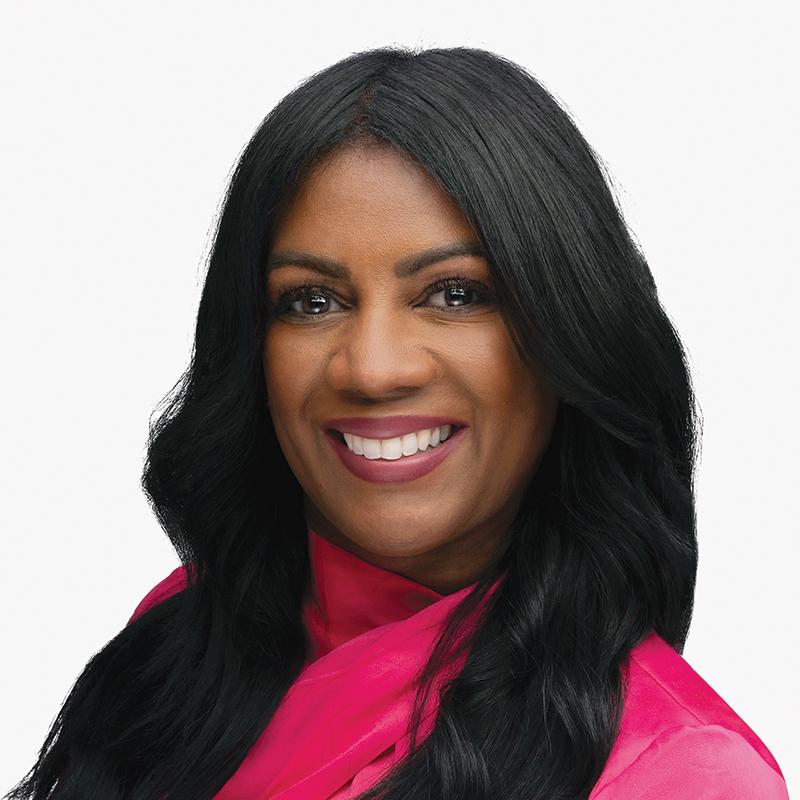I’ve always wanted to travel abroad, but I never knew that it’s almost like, it’s fundamental, it’s something that every person deserves a chance to do, because it gives you a chance to evolve and look at yourself. You can evolve in other ways, but this is one of the best, purest ways because you’re outside of your comfort zones and that’s really where we grow.
Grade 8 student (Engel et al. 2017, p. 517)
Introduction
Educational exchanges are not only about acquiring language skills or teaching experiences but also about connecting deeply with people, places, cultures and systems. We examined 44 studies on student and teacher exchanges and uncovered how participants were transformed by these experiences and contributed to building diverse global communities and how systems that support education exchanges demonstrated responsiveness and innovation. The voices of the participants articulate the “why” and the “how” of offering and participating in these exchanges. The deepening of cultural understanding and the widening of perspectives increased the participants’ appreciation of diverse perspectives.
Gaining insights: Transformational participant outcomes
What do I need to do now when I go back to my schools? I need to connect more with my students and help the new language learners connect with the native speakers in order to build up relationships, which is indeed what drives the motivation to learn anything, to realize their dreams.
(Baecher and Chung 2020, p. 46)
When students and teachers participate in educational exchanges, they gain meaningful insights from their participation in these transformational experiences. For teachers, meeting other education professionals influenced their own teaching and learning, which subsequently benefited student learning outcomes. The exposure to new countries and cultures caused teachers to reflect on and consider issues of social inequality, to challenge enduring patterns of privilege and to implement equity-oriented teaching strategies. The enhancement of these intercultural competencies allowed teachers to better translate cross-cultural knowledge into teaching and learning practice, which in turn cultivated a flexible and innovative environment for students.
Students participating in exchanges reported outcomes that also included developing intercultural competencies, often through in-class learning activities and social interactions with their host families. Through cross-cultural learning opportunities, students grew personally by developing their curiosity, openness and respect for others. This transformational growth was displayed in self-reported aspects of self-confidence, sense of responsibility and self-esteem. Interacting with people from different cultural backgrounds taught students about cultural diversity and social differences, reduced intercultural bias, fostered positive local relationships and enhanced the ability to re-examine their initial thoughts and observe phenomena from multiple perspectives. For example, students from China who participated in an educational exchange in the United States shared that they developed increased global consciousness and experienced acculturation as a mechanism for growth (Cheng and Yang 2019). Outcomes from other studies included positive improvements in student attendance, and engagement in class during the exchanges improved academic results and performance, typically in language learning and intercultural competence. Overall, teacher and student exchanges provided multifaceted learning experiences, which transformed their outlook and behaviours upon return home.
Opening doors: Building diverse global communities
I want to branch out more and learn their language, learn their culture . . . try to become a part of them and see if I can actually be able to go to a place and not be considered [a] visitor, but simply another human being. (Student in the Netherlands)
(Newstreet and Rackard 2018, p. 69)
Educational exchanges enabled teachers and students to contribute to local society as part of a global community of practice, nurturing their awareness of social responsibility and commitment to the larger community. They were motivated to participate in or lead the development of projects, curriculum or other practice. Teachers emphasized that their participation in exchanges fostered understanding of the importance of social justice in community building, resulting in an integrated learning community for all global citizens. In one study, 22 secondary teachers from Colombia, El Salvador, Ghana, India, Kazakhstan, Morocco, Poland, Romania, Russia, Rwanda, Thailand and Ukraine who completed an exchange in the United States shared that the learning experience enhanced their intercultural sensitivity and awareness, knowledge of other countries and cultures, and teaching skills and professional development in a structured, cross-cultural setting (Paik et al. 2015). Through reflexive practice, teachers reflected on their own cultural views and leadership philosophy, in turn, guiding them in building a more engaging school community.
Community-based practices in student exchanges focused on preparing students to participate in the international community through interacting academically, reflecting on moral perspectives and encouraging social participation. Students experienced multiple ways of learning, thinking and living, which enabled their comprehension and capacity to better understand the globalized world. Through this new understanding, including the development of linguistic, social and transnational identities, students reported an expanded intercultural and international world view and felt more aware of the benefits of promoting global citizenship and building an inclusive learning community.
Creating connection: Responsive, innovative educational systems
International exchange and training programs [serve] as a magnifying glass that enables observers to see success and failures in such aspects of education as international education, intercultural communication, educational reform, to name a few.
(Rapoport 2013, p. 73)
The benefits of attending educational exchanges included learning about other school curriculum and systems and seeing how they function, resulting in teachers and students bringing that knowledge and experience back to their home schools. Purposeful interaction of different study-abroad curricula designs allowed for the gathering of ideas for improvement of local student exchange programs. This was evident in the experience of teachers from New York City to Costa Rica, where teachers questioned their curriculum regarding equity and diversity as they saw the connections and disconnections between policy and teaching practice (Baecher and Chung 2020).
Students can be included in the process of reflection and finding solutions. A reoccurring theme through many exchange experiences was the considerations for access to student exchange, including finding a solution to the financial challenge of study abroad, so all would have opportunities to participate in exchange programs.
Conclusions
The benefits of teacher and student exchanges include the development of personal intercultural competencies, language learning, understanding of diversity and the development of skills for navigating new environments. Through international exchange, teachers and students also experience personal development, including developed cross-cultural or transnational identity, increased confidence and motivation, and expanded open-mindedness. As well, teacher and student exchanges have an impact on pedagogy and learning in classrooms upon return through comprehensive perspectives and the inclusion of social justice goals. Our creation of a review of the literature on teacher and student exchanges revealed not only the benefits of exchanges but also calls to action to improved exchange design (Dressler et al. 2021). The design of exchanges to include more feedback from participants in areas of preparation, reflection and critical thinking would benefit school communities and K–12 education systems.
References
Baecher, L., and S. Chung. 2020. “Transformative Professional Development for In-service Teachers Through International Service Learning.” Teacher Development 24, no 1: 33–51. https://doi.org/10.1080/13664530.2019.1682033
Cheng, B., and P. Yang. 2019. “Chinese Students Studying in American High Schools: International Sojourning as a Pathway to Global Citizenship.” Cambridge Journal of Education 49, no 5: 553–73. https://doi.org/10.1080/0305764X.2019.1571560
Dressler, R., C. White Prosser, J. Liu, L. Jardine, N. Neutzling, Y. Ma, R. A. van Beers, N. Liu, R. Pira and K. McCurdy. 2021. Benefits of International Teacher and Student Exchanges for Participant Outcomes, School Communities and K–12 Education Systems: A Review of the Literature. Edmonton, Alta: Alberta Teachers’ Association.
Engel, L. C., J. Fundalinski, K. Gatalica, H. Gibson and K. Ireland. 2017. “Global Citizenship Education for Every Student: The Washington, DC Public Schools’ Study Abroad Program.” Childhood Education 93, no 6: 516–24. https://doi.org/10.1080/00094056.2017.1398568
Newstreet, C., and J. Rackard. 2018. “High School Study Abroad: What Do World History Students Really Learn?” Journal of International Social Studies 8, no 2: 55–77. www.iajiss.org/index.php/iajiss/article/view/359/288
Paik, S. J., D. E. Ganley, T. F. Luschei, S. M. Kula, M. A. Witenstein, Y. Shimogori and K. K. Truong. 2015.
“Intercultural Exchange Among Global Teachers: The Case of the Teaching Excellence and Achievement Study Abroad Program.” International Journal of Intercultural Relations 49(November): 100–13. https://doi.org/10.1016/j.ijintrel.2015.06.011
Paterson, J. 2017. “Windows to the World.” Principal Leadership 18, no 4 (December). https://www.nassp.org/publication/principal-leadership/volume-18-2017-2018/principal-leadership-december-2017/windows-to-the-world/
Rapoport, A. 2013. “Teacher Exchange as a Means of Social Studies Curriculum Internationalization.” Journal of International Social Studies 3, no 1: 69–76. www.iajiss.org/index.php/iajiss/article/download/102/85
Adjunct Assistant Professor
Werklund School of Education, University of Calgary
Associate Professor
Werklund School of Education, University of Calgary
Postdoctoral Associate/Assistant Diversity Co-ordinator
University of Calgary


